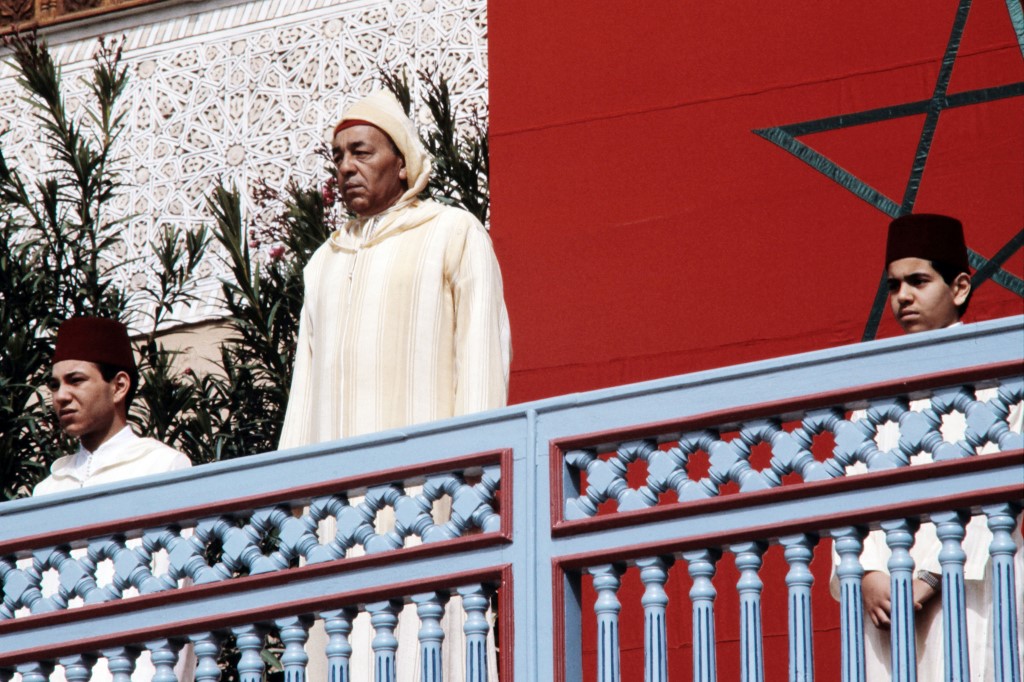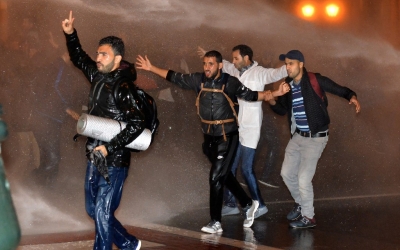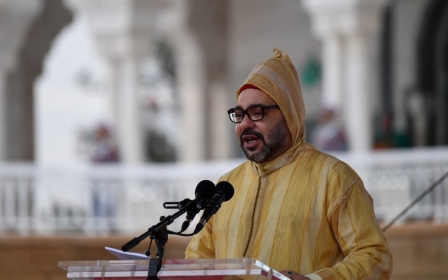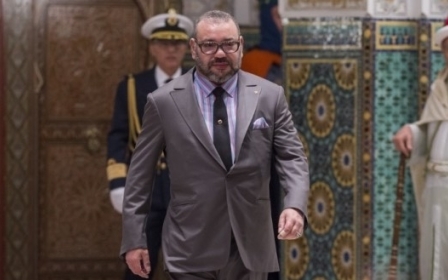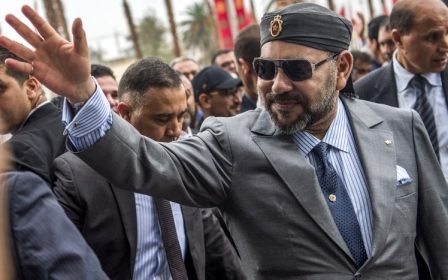Morocco and France's far right: Dangerous liaisons?
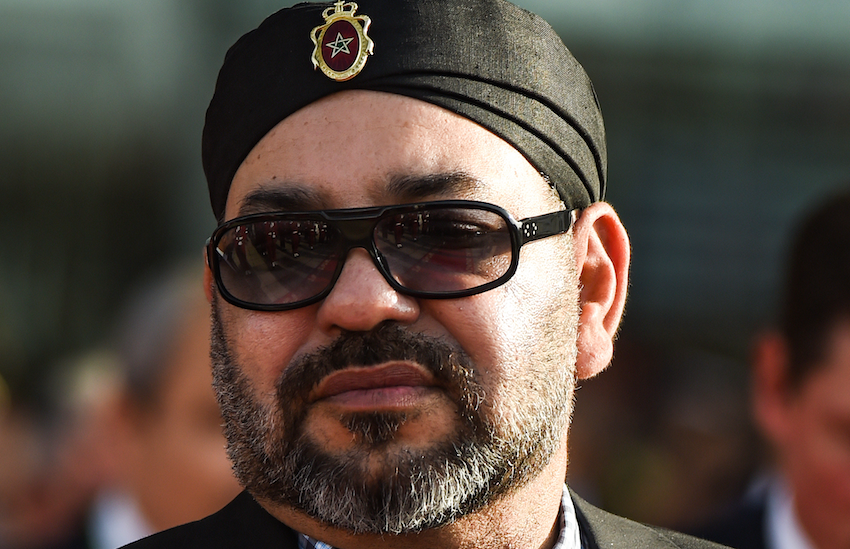
Since the colonial era, France and Morocco have been considered as friends, tied together by a “community of interests”, as colonial-era adminstrator General Lyautey liked to declare.
History has corroborated that perception. Today, France is Morocco’s top economic partner and country of emigration, and several politicians of Moroccan origin have become ministers in the French government. The number of French expatriates in Morocco is also on the rise.
Yet, historical relations between the two countries have not always been easy, as illustrated by the clandestine connections between the kingdom and the French far-right.
Return of national populism
Despite the illusory victory (23 percent) of the National Rally party in the latest European Parliament election, right-wing parties have made significant and steady electoral progress. These results will not give them a chance to influence decisions at Strasburg, but over the next several years, the French political landscape will most likely keep moving towards national populist parties.
New MEE newsletter: Jerusalem Dispatch
Sign up to get the latest insights and analysis on Israel-Palestine, alongside Turkey Unpacked and other MEE newsletters
The term “national populism” was introduced in the 1970s by Argentinian sociologist Gino Germani to designate the nationalist and populist regimes of Latin America from the 1930s to the 1950s. Indeed, France’s National Front did not suddenly appear in 1972; its ideological roots are much deeper.
The far-right, under different names, has always been a component of France's political landscape and culture
The far right, under different names, has always been a component of France’s political landscape and culture, shaped over time by layers of successive loyalties: loyalty to King Louis XVI and the Vendée region (notorious for its opposition to the French Revolution); loyalty to proto-fascist thinker Charles Maurras and his counterrevolutionary Action Francaise; loyalty to the collaborationist Vichy regime during World War Two; loyalty to the “martyrs” of French Algeria.
This explains the dangerous ideological shifts of national populist movements, which to this day are considered unacceptable by most of France’s political class.
Authoritarian collusion
In former French colonies, including Morocco, governments have rejected “political normalisation” with the French far right. Yet, the history of political relations between the two countries paints a different picture.
French writer Louis-Sebastien Mercier once noted that “opposites attract”, and this perfectly describes the unusual 1990 meeting in Rabat between two controversial political figures: King Hassan II and Jean-Marie Le Pen, who was accompanied by a delegation of French MPs from the European Parliament. In a 2007 interview with the pro-regime Gazette du Maroc, Le Pen said he was honoured to have been able to meet the king.
Morocco’s monarch offered the National Front leader the red-carpet treatment, including a prestigious trip through numerous regions of southern Morocco. He even arranged for Le Pen to fly back to France in a private jet. Impressed by the warm welcome, Le Pen supported Morocco’s proposal for the autonomy of Western Sahara, within the framework of national sovereignty.
Not so coincidentally, those declarations in support of Hassan II’s regime occurred a year and half after the 1988 dissolution of the National Assembly by socialist President Francois Mitterrand and the constitution of a difficult coalition government. Morocco’s monarch was trying to get at least the symbolic support of France’s far right, as an indirect challenge to the foreign policy of Mitterand, who was hostile to the regime of Hassan II.
Mohammed VI would walk in his father’s diplomatic footsteps by promoting the issue of territorial integrity to the top of his political agenda. He did not hesitate to adopt a pragmatic diplomacy, aimed at defending the national cause by any means possible, including tactical alliances with a foreign political force that was once deemed taboo.
Coopting political figures
Relations between the Moroccan regime and certain figures of France’s far right are strange, to say the least. The regime’s strategy is based on coopting French political figures from all sides in hopes of getting their support on top political and security issues.
Behind the scenes, Moroccan authorities have even enlisted the services of former members of the National Front to defend the kingdom’s territorial integrity. Amid a crisis with French President Francois Hollande’s socialist government, Morocco obtained the support of political scientist Aymeric Chauprade, a former adviser to National Rally leader Marine Le Pen.
And far from the cameras, certain Moroccan officials have met members of Italy’s far right. In 2015, politician Ilyas El Omari and human rights activist Driss El Yazami each met Italy’s Matteo Salvini, leader of the national populist Northern League.
But results of the 2012 French presidential election showed that few French voters living in Morocco cast a ballot for Le Pen - just 569, or 3.65 percent of French voters in the country. Although the figure is low, it is still a bit surprising given the reactionary, anti-immigration discourse of Le Pen's party.
The results seem to suggest that at least some of these expatriates identify more and more with the right-wing, national populist discourse.
Despite the clandestine relations between certain Moroccan officials and French far right figures, the Moroccan regime remains intransigent against any fascist, reactionary, or antisemitic ideology from a foreign community living in Morocco.
Pragmatic moderation
The “supreme interests of the nation” often supersede official diplomatic engagements, but this does not mean that Morocco would be willing to grant official legitimacy to the national populist ideology of the French far right.
In December 2018, Moroccan authorities arrested members of the notoriously racist and Islamophobic French right-wing group Generation Identitaire, who came to Marrakech to protest a UN-backed global migration pact, indicating that such discourse was not welcome.
Despite its discreet contacts with the French far right, Morocco maintains its policy of pragmatic moderation towards France, which it still considers a privileged economic partner and historical political ally. One of the main reasons is that France has long defended the kingdom on the international political stage, especially on the issue of the Sahara.
The regime's long-term objective is to defend the kingdom's territorial integrity by any means available
Yet, France has on occasion criticised the Moroccan regime’s economic collusion with the National Rally.
A few years ago, multiple voices denounced the fact that Le Pen’s party, despite its vocal defence of “Made in France” manufacturing, was cynically producing T-shirts in Rabat.
Such strange relations between the kingdom and France’s far right should be understood as a part of Morocco’s “state lobbying”. The regime’s long-term objective is to defend the kingdom’s territorial integrity by any means available, even if that means flirting with the far right.
This type of cynical pragmatism has long been common, reminding us of Plato’s famous words: “Extreme things are always rare; average things are very common.”
The views expressed in this article belong to the author and do not necessarily reflect the editorial policy of Middle East Eye.
This article has been edited and condensed from the original version that appeared in the MEE French edition.
Middle East Eye delivers independent and unrivalled coverage and analysis of the Middle East, North Africa and beyond. To learn more about republishing this content and the associated fees, please fill out this form. More about MEE can be found here.



